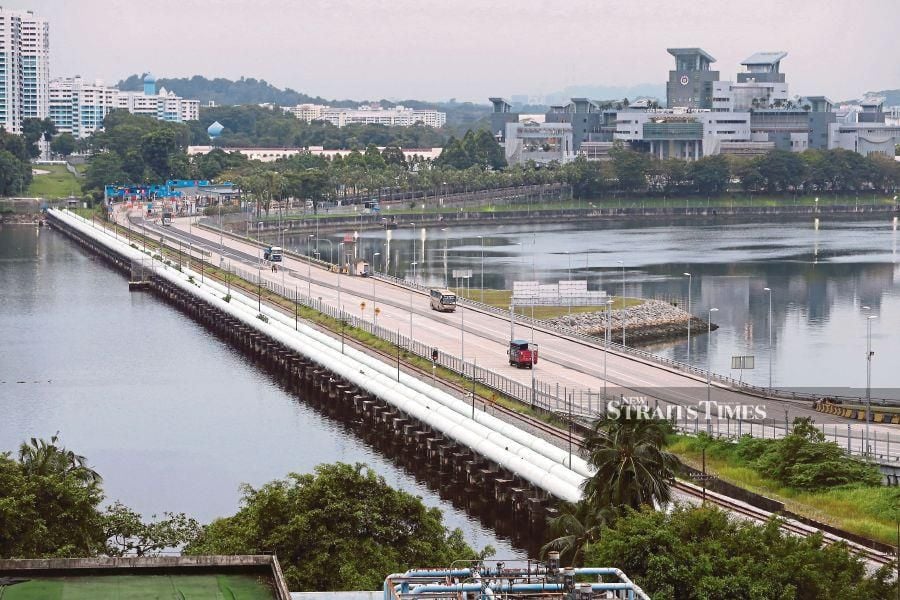By NST Property - April 6, 2023

The "fast and furious" rental rise in Singapore should help the real estate market in Johor, said KGV International Property Consultants (Johor) Sdn Bhd executive director Ir Samuel Tan.
A recent report states that a total of 21 four-room HDB flats crossed the SG$1 million mark on the resale market for the first quarter of this year.
Tan said this is the highest in recent years and triple the seven such units sold above SG$ 1 million in the first quarter of 2022.
"Singapore's relatively outstanding performance in crisis management over the past three years earned itself brownie points in attracting investment as well as the choice of the rich and wealthy to settle down or work. However, Singapore's living cost as a whole will rise further albeit at a more gradual pace moving forth.
"We believe Johor Bahru being the closest neighbour to Singapore will be able to tap some spill-over in terms of business opportunities, investment across sectors as well as a choice of accommodation. As it is, many businesses and manufacturers based in Singapore have already relocated some or all of their operations to Malaysia to capitalise on the lower cost," he told NST Property.
Tan was commenting on a recent article by TODAY entitled: "Survey: Amid soaring rentals, seven in ten Singapore firms ready to move expat staff overseas".

TODAY reported how some expatriates in Singapore intend to leave the country amid the skyrocketing rental prices, which surged at the fastest pace in 15 years last year, outpacing some other major cities.
European Chamber of Commerce, Singapore (EuroCham) conducted a survey aimed to assess the extent and severity of the impact of rising costs of rental on business operations in Singapore.
The findings, released last month, found that 50 per cent of employees who have had to renew their residential housing lease this year or last year had faced rental increases of more than 40 per cent.
Another 36 per cent found that the hike was between 20 to 40 per cent.
According to the report, Singapore will lose its attractiveness to foreign companies which will decide to relocate their offices to neighbouring countries, if business costs do not fall or the Government doesn't step in to help.
Tan said that the imbalance between supply and demand for residential properties in the republic was a major factor in why the rental of Singaporean homes, whether private or public, shot up dramatically to the extent of 40 per cent in this one to two years.
According to him, some of the disequilibrium's causes include the Covid-19-related delay in the delivery of HDB apartments and the unexpected increase in foreigners and foreign employees after Singapore's border reopened in April.
"From the survey conducted by EuroCham as highlighted in the article, it says that half of the expatriates have been hit by rental increases of more than 40 per cent, while about seven in 10 businesses are ready to relocate their staff out of Singapore if there is no relief from rising operating costs. While we agree that the surge in the rental cost has been extremely fast and unexpected, we do not think it is going to overly affect Singapore's competitiveness as a whole," he said.
Firstly, according to Tan, other considerations should be taken into account along with high rental costs when choosing an investment location. These considerations include political stability, the general macroeconomic environment, support for good governance, effective manpower, and first-rate infrastructures.
And for the majority of businesses, he said the rental costs for the expatriates only make up a tiny portion of the total operating expenses.
He also thinks that even though the Republic's residential rental market will probably expand in the long run, the "Black Swan" event's present excessively high rental growth is probably just a passing. (a.k.a Covid-19 and the consequential lockdowns).
"In other words, the super high rental growth rate over the past two years or so is likely to taper down once the housing supply-demand is back to the near-equilibrium," he said.
Looking ahead, he said that the upcoming Rail Transit System line, which is scheduled to begin operations in 2026, and the potential revitalisation of the Kuala Lumpur-Singapore High-Speed Rail are the main draws for the Johor real estate market.
He also thinks that if both countries' relations continue to get better, more connections like link bridges, ferries, and rail links might be constructed in the future to make it easier to connect people, goods, and trade.
"If we fast forward 10, 20, or 50 years from now, it is not impossible for an expatriate to live in a 'hinterland" up north but work/connect seamlessly, virtually, and physically to the main hub in the Republic down south. If managed right, such arrangement offers the best value proposition and it is highly complementary for the workers and companies across the causeway over the long term," he said.
Tan said many Malaysians who work in Singapore opt to stay in Johor Bahru and travel daily.
"To stretch the Dollar further, there are Singaporeans and expatriates who also choose to stay in Johor Bahru but work in Singapore. Nevertheless, the latter group is still a minority currently," he said.
No comments:
Post a Comment